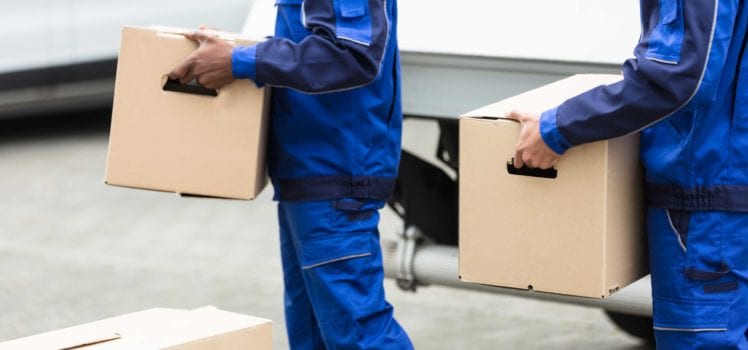Nationwide Moving Companies | Over 5000 Quality Movers
Compare & Save up to 30%
Search our National Directory of Long Distance Movers
Find top-rated nationwide movers anywhere in the United States. Relocating within to another state or across the country? From coast to coast, get the lowest prices from the best long-distance moving companies.
From a small apartment to a 6-bedroom home you’ll get connected with reliable licensed movers.
Long Distance Moving Buying Guide
Moving long distance can be a daunting task, but with proper planning and the right resources, you can make it a smooth process. This guide provides an outline to help you make informed decisions throughout your moving journey.
1. Determine Your Budget
- DIY vs Professional Movers: Consider whether you’ll be doing it yourself (renting a truck and loading/unloading) or hiring professional movers. The former is usually cheaper but more labor-intensive, while the latter can be pricier but offers more convenience.
- Hidden Costs: Be wary of potential hidden costs, such as additional charges for heavy items, long-carry fees, or storage fees.
2. Choose the Right Moving Company
- Get Multiple Quotes: Request at least three in-person or virtual estimates. This will help you understand the market rate and select a fair price.
- Check Reviews: Look for reviews on platforms like BBB, Yelp, and Google. Past customer experiences can provide insight into a company’s reliability.
- Insurance and Valuation Protection: Ensure the company offers coverage options for lost or damaged items during the move.
- Verify Credentials: For interstate moves, the company should have a USDOT number (from the U.S. Department of Transportation).
3. Packing and Supplies
- Packing Supplies: You’ll need boxes, packing tape, bubble wrap, packing paper, and markers. Consider purchasing specialized boxes for items like dishes or clothing.
- Declutter: Before packing, declutter and donate or sell items you no longer need.
- Special Items: If you have fragile or high-value items, consider hiring professionals to pack them or purchase additional padding and protection.
4. Logistics and Scheduling
- Moving Off-Season: Moving between September and May can often be cheaper due to decreased demand.
- Weekdays vs Weekends: Moving on a weekday might be more affordable than during the weekend.
- Plan Ahead: Schedule your move at least one month in advance. This ensures you get your preferred date and potentially better rates.

5. Prepare for Arrival
- New Home Prep: Ensure your new home is ready for move-in. If possible, visit ahead of time to measure doorways, check parking, and identify any potential obstacles.
- Utilities: Set up utilities (water, electricity, gas) to be activated by the time you arrive.
- Address Change: Update your address with the post office, banks, and other necessary institutions.
6. Stay Organized
- Inventory List: Keep a detailed list of all packed items and their conditions. This can be useful for insurance purposes and to ensure nothing gets lost.
- Important Documents: Keep important documents (passports, financial documents, birth certificates) with you during the move.
- First-Night Box: Pack a box with essentials you’ll need for the first night in your new home – toiletries, basic kitchen items, clothes, and medications.
7. After the Move
- Inspect Deliveries: As your belongings are unloaded, check them against your inventory list and inspect for damage.
- Tipping: If you’re satisfied with the service, it’s customary to tip your movers.
- Review: Leave a review for your moving company to help future customers.
8. Safety and Precautions
- COVID-19 Precautions: If applicable, inquire about the moving company’s safety protocols related to the pandemic.
- Avoid Scams: Be wary of companies asking for large deposits or those with extremely low quotes. It’s a red flag if the company does not offer an in-person or virtual estimate.
Final Thoughts
Long-distance moving requires a combination of careful planning, research, and organization. By following this guide, you can ensure a successful move and a positive start in your new home. Safe travels!

Nationwide Moving: The Definitive Guide to Relocating Your Life
Moving is a stressful time for anyone. It can be expensive, complicated, and downright exhausting. If you’re planning to move across the country; whether now or in the future, we’ve got your back! We’ll teach you everything you need to know about moving from coast to coast and everywhere in between!
Part One: Understand the Cost of Moving Across the Nation
Moving is expensive no matter what, but there are some ways you can save a few bucks. The real question is how much money do you have budgeted? Here’s a breakdown of costs for different price points (depending on your personal situation).

The most important thing about moving is to plan ahead. Don’t wait until the last minute and put yourself in a tight spot financially.
Part Two: What You Need to Know About Moving from Coast to Coast
Each move has its own set of challenges, but there are certain aspects that all moves have in common; whether you’re moving across town or cross-country. The following sections will touch on some of the most common questions people have about moving.
Part Three: How to Prepare for Moving to Another State
It’s more than just packing up your worldly possessions and driving off into the sunset with a u-haul in tow! There are certain things you need to do before, during, and after your move. Here’s what you should do:
Part Four: The Ultimate Guide to Long Distance Moving
There are so many moving companies out there that it can be hard to know who is the best fit for you and your personal situation. We’ve created this guide with our favorite nationally-known movers, as well as some smaller, locally-owned companies that may be more tailored to your specific needs.
We can help you find a quality nationwide mover near you. Simply click below and receive competitive quotes from long-distance movers near you.
GET QUOTES - SAVE UP TO 30%Common FAQ’s About National Movers
Blue our answers to some commonly asked questions when moving from state to state.
1. Are national movers licensed and regulated?
Answer: Yes, national movers operating across state lines in the U.S. are regulated by the Federal Motor Carrier Safety Administration (FMCSA) and are required to have a valid USDOT number.
2. How are moving costs determined?
Answer: Moving costs are typically based on the weight of your items, the distance they’ll be transported, and any additional services you request, like packing or storage. Some movers also offer flat rate pricing.
3. Do I need to get an in-person estimate?
Answer: While not always required, an in-person or virtual estimate can give you a more accurate quote and help avoid unexpected costs on moving day.
4. Are my belongings insured during the move?
Answer: Movers are required to offer basic valuation protection, which provides minimal coverage. However, for full protection, you might want to consider purchasing additional moving insurance.
5. How long will the move take?
Answer: The duration depends on the distance and the size of the move. For long-distance moves, the mover should provide a delivery window rather than a specific date.
6. Do national movers handle specialty items, like pianos or artwork?
Answer: Many do, but always check in advance. There may be additional fees for specialty items, and some movers might not have the equipment or expertise to handle them.
7. What should I do if my belongings are damaged upon arrival?
Answer: File a claim with the moving company as soon as you notice the damage. It’s helpful to have photos of your items before and after the move.
8. Are there any items that movers won’t transport?
Answer: Yes, most movers won’t transport hazardous materials, perishable goods, plants, pets, or personal items of high value like jewelry or important documents.
9. How far in advance should I book my move?
Answer: It’s advisable to book at least one month in advance, especially during peak moving season (late spring to early fall).
10. Is it customary to tip national movers?
Answer: Yes, if you’re satisfied with their service. Typical tipping ranges from $20-$50 per mover depending on the complexity and duration of the move.
11. How can I avoid moving scams?
Answer: Always check for valid licensing, read reviews, get multiple quotes, avoid companies that ask for large cash deposits upfront, and be wary of quotes that are significantly lower than others.
12. Can I pack my belongings myself?
Answer: Yes, you can pack on your own, but be aware that if items you pack yourself are damaged, they might not be covered under the mover’s insurance or valuation protection.
Remember, the key to a successful move with national movers is clear communication and understanding the terms and conditions of your agreement.

For more info read ‘What Moving Companies Will and Won’t Pack‘
Will Long Distance Moving Companies Transport Alcohol?
The policies regarding the transportation of alcohol by long-distance moving companies vary depending on various factors. Here’s a breakdown:
1. Company Policies: Some moving companies have policies against transporting alcohol, regardless of laws or regulations. This could be due to liability concerns, potential for breakage, or other company-specific reasons.

2. State Laws: Interstate moves might cross into states with different alcohol laws. Some states have strict regulations about importing alcohol, even for personal use. Before moving, you should check the alcohol import regulations for the state you’re moving to.
3. International Moves: If you’re moving internationally, the rules become even more complicated. Every country has its own regulations regarding the import of alcohol, and duties/taxes may apply.
4. Safety and Storage: Alcohol is flammable, and moving companies might avoid transporting it for safety reasons. Additionally, some wines and spirits require specific storage conditions that a moving truck might not offer.
5. Packing: If a moving company does agree to transport alcohol, ensure that it’s packed securely to prevent breakage. Using original boxes or specialized wine boxes is a good idea.
Recommendation: If you have a valuable collection or a significant quantity of alcohol, you might consider specialized wine or alcohol moving services. These services are equipped to handle the specific needs of transporting alcohol safely and legally.
Always communicate with your moving company about what you plan to move. If they do not transport alcohol, you may need to make other arrangements or move it yourself.
Can Nationwide Moving Companies Transport Cars?
If you’re part of a multi-vehicle family, there is a good chance that you’re not going to want to drive all of your vehicles across the country on your own. The good news is, there are many nationwide moving companies that are happy to get your vehicles to your new home, even if that home is on the other side of the country.

Many moving companies assess your fee based on the weight of your goods, which means a car can be a pricey item to move. Ask your company if they have a special service for car transportation. Some companies specialize in auto moving and will have more affordable options than a regular furniture mover would. For instance, sometimes it is more economical to move cars by rail, rather than by truck.
When looking for a company to move your car, always make sure that they provide fully comprehensive insurance (and proof of that insurance). A car is typically much more valuable than the average household goods that a mover would transport for you, so it is important to make sure you are protected in the event that something goes wrong.
GET QUOTES - SAVE UP TO 30%Be sure and see our review of the best moving companies.
How do National Movers Charge?
If you’re wondering how much do national movers cost, this should be a helpful guide. The amount of property that you need to be moved across the country is going to be the basis for quote issues by national moving companies. There are two ways that this is assessed. Almost all moving companies will use the weight of your final shipment to calculate your cost. There are, however, a few exceptions that will use volume instead.
National movers, especially those operating across state lines in the U.S., have specific ways they charge for their services. Here’s a breakdown of the most common charging methods and factors affecting the cost:
-
By Weight:
- This is the most common method. The moving company will weigh the moving truck empty and then again once it’s loaded with your belongings. The difference between the two is the weight of your shipment.
- The overall cost is then determined by multiplying the weight by a rate the company has set for the distance you’re moving.
-
By Volume:
- Some companies might charge based on the amount of space your belongings occupy in the moving truck.
- This method is less common for interstate moves and might be more prevalent for international or container-based moves.
-
Flat Rate:
- Based on an in-home or virtual assessment of the items you need to move, some movers might offer a flat rate.
- This method offers predictability in costs but is usually negotiable based on the list of items.
-
Hourly Rate:
- More common for local moves, some companies charge by the hour, especially for loading, unloading, and transportation time.
- This method can be unpredictable if unforeseen delays occur.
-
Additional Services and Fees:
- Packing/Unpacking: If you opt for professional packing and unpacking services, this will be an additional charge.
- Special Items: Heavy, bulky, or delicate items like pianos, artwork, or large furniture might incur additional fees.
- Storage: If you need temporary storage, either in the origin, transit, or destination location, there will be storage fees.
- Insurance: Basic valuation coverage might be included, but comprehensive insurance will be an extra charge.
- Accessorial charges: These can include long-carry fees (if movers have to carry items a longer distance from the home to the truck), shuttle service fees (for locations where a larger truck cannot park close by), and more.
- Travel Fees: For long-distance moves, there may be added costs to cover the crew’s travel time and expenses.
-
Geographical Factors:
- Moving to/from places with limited accessibility or located far from a major hub can increase the price.
- Some areas may also have higher costs of living, which could affect labor costs.
-
Time of Move:
- The time of year, month, and even day of the week can influence pricing. Peak moving season (usually summer) tends to be more expensive.
-
Estimates:
- Always request an estimate, preferably in writing. For long-distance moves, an in-home or virtual estimate is preferable for accuracy.
- Ensure that the estimate includes all potential charges to avoid surprises.
Lastly, always review your contract and the terms and conditions carefully. Understand all charges, and don’t hesitate to ask the moving company any questions about their fees or pricing methods.
Ready to start comparing nationwide moving companies? Get started now!
GET QUOTES - SAVE UP TO 30%







